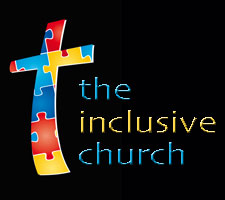General Children’s Ministry Policies & Procedures
With last week’s two posts on general safety in children’s ministry, I received some private emails asking for more information on general children’s ministry policies & procedures. Woodmen Valley Chapel (Colorado Springs, CO) has one of the best volunteer manuals I’ve seen – and their children’s ministry team has been gracious enough provide access to their handbook here (no longer available). Note as of 07/12/11: Since this post was originally written, Woodmen Valley Chapel’s Access Ministry has created a new guidebook specific to the church’s special needs ministry. This special needs guidebook supercedes the manual referred to below in the body of this post. Click here to download the new Access Ministries Guidebook.
*************************
For several excellent examples of General Children’s Ministry Policies & Procedures, check out this post on Kenny Conley’s blog at Children’s Ministry Online.
For pictures posted throughout a children’s ministry area, see the post Child Protection Signs for Kidmin Volunteers.
For more example P&P from the Baptist General Convention of Oklahoma, click here.
*************************
Katie Garvert is the Access Ministries Coordinator for Woodmen Valley Chapel. After serving in the public school system as a special education teacher, four years ago Katie joined Woodmen Valley Chapel to lead the special needs programming. Woodmen Valley Chapel currently serves approximately seventy individuals with special needs. I have enjoyed a warm friendship with Katie and appreciate her heart and personal calling to help churches successfully include families affected by special needs. Several of the posts on this blog have Katie’s wisdom embedded in the content – she is a treasure of a resource to me!
I have noted below several takeaways and best practices inside Woodmen Valley Chapel’s original children’s ministry volunteer manual
Keep in mind that as with every form, manual, or practice adopted, a church’s legal advisor and insurance carrier should be relied on for final guidance!
Ministry Safe Online Training & Testing (page 11 inside the manual)
Woodmen Valley Chapel requires every children’s ministry volunteer over age 16 to complete online training at ministrysafe.com. This online course was designed to reduce the risk of sexual abuse inside of churches. Because criminal background checks are not possible on teen volunteers and because many states do not allow the public disclosure of under-age sex offenders, including teens (and preteens when possible) in proactive and preventative training opportunities is a brilliant practice.
Accountability & Expectations (pp. 10 – 12)
The Children’s Ministry handbook sets up expectations of their volunteers and throughout the manual creates accountability for their own staff. The handbook anticipates and welcomes parent feedback and guides volunteers how to direct parent comments to the children’s ministry team. The church staff then commits to verbally follow up with parents within two days (p. 12). Setting expectations and stating responsibilities in writing (and living up to them!) builds a culture that volunteers and parents want to be a part of.
Behavior Management & Discipline (p. 16)
Woodmen Valley Chapel outlines an excellent conduct and discipline policy that is behavior driven and applies to all children regardless of ability or any diagnosis. For any child (special needs or typical) that exhibits behavior that is harmful to others, the church provides an outline of action steps the children’s ministry team will take and specifically how the parents will help to correct the unsafe behaviors.
Diapering, Bathroom & Toileting Policies (p. 22 – 23)
The handbook offers truly helpful and well explained bathroom policies. Volunteers’ expectations are clearly defined (e.g. regularly checking and changing a child’s diaper, permitting only females age 15 and older to change diapers).
The toileting policies for children with special needs are outlined. Children with special needs over age four must be diapered by their parents. Katie Garvert explained to me that the church has always desired the most professional and risk-preventative practices for their participants with special needs. The children’s ministry originally wanted to help parents by providing diapering services for children with special needs while they were in church care. The plan was to pattern the church’s diapering policies similar to the local school system, which requires a special diapering training and certification for school employees. However, the cost of this training and certification was very high and outside the conceivable parameters of the church’s budget. So after discussion with the church staff and risk management advisors, the church adopted the policy it currently has in place, which requires parents to diaper their own children during church programming.
For more related information see Special Needs Ministry Bathroom (& Toileting Policies).
Snacks (Not in Handbook, per conversation with Katie Garvert)
Due to the high occurrence of allergies and unique dietary needs inside the special needs population, special needs classrooms do not serve any snacks unless required as part of a specific child’s medical plan.
For more information on allergy issues, see the following two posts:



Trackbacks & Pingbacks